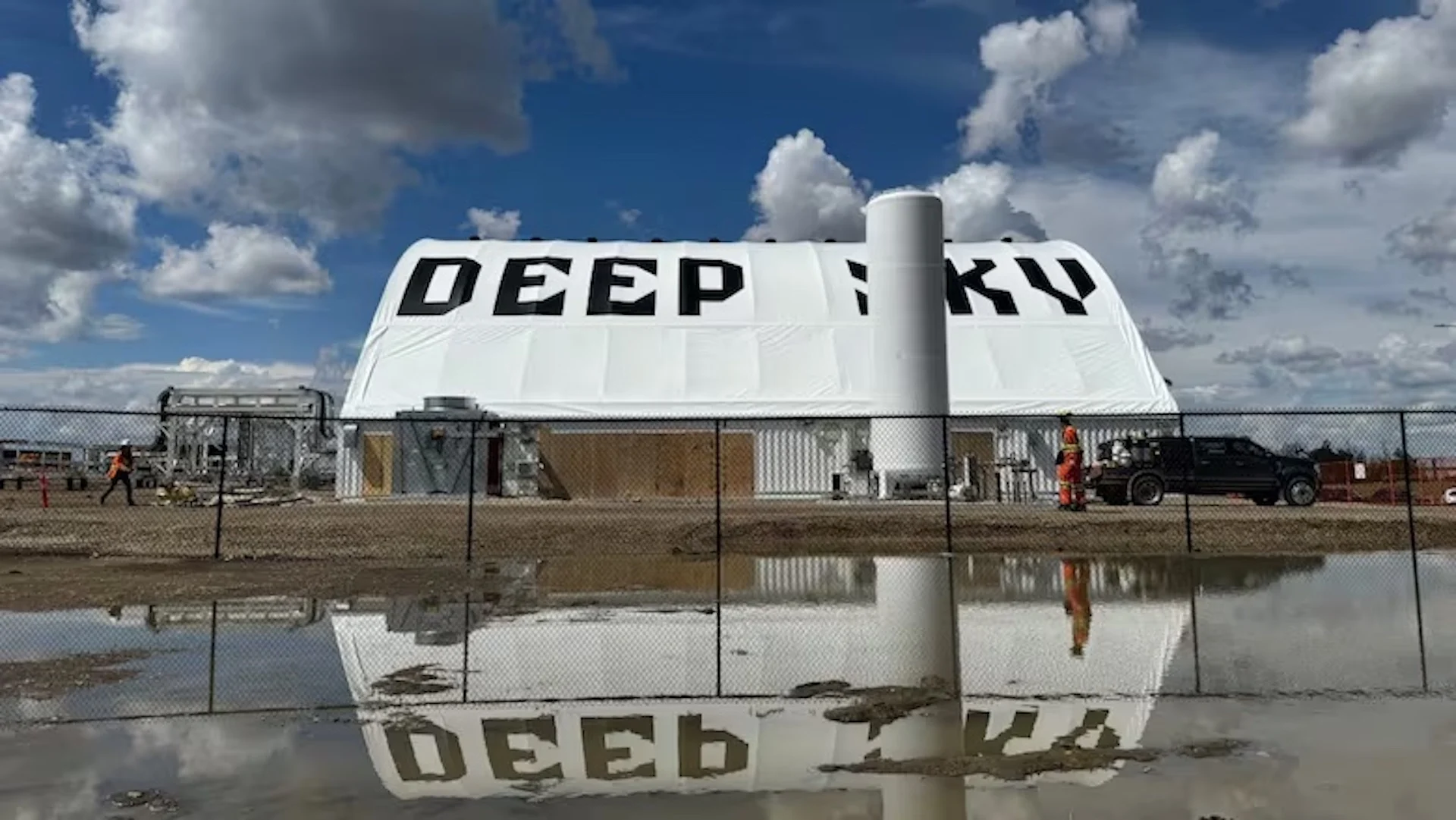
How one company plans to suck carbon right out of the air (and make money)
Just off the highway near Innisfail, Alta., a town about 120 kilometres north of Calgary, is a construction site immediately identified by a large tent boasting the words "Deep Sky" in a groovy, arcade-style font.
The roughly two-hectare facility, still under construction, is hosting what could be called a carbon removal Olympics. It will pilot eight different versions of a similar technology using various machines that will suck in air, remove the carbon dioxide and send it to a central plant where it will be compressed and liquified for storage deep underground.
DON'T MISS: Increasing tree canopy is key for carbon capture, but there's a catch
The winner of this initiative wouldn't get a medal on a podium. Instead, Deep Sky, the Montreal-based project developer behind it, plans to take the best versions of the direct air capture technology that prove most effective in Canada's climate and deploy them on a commercial scale all over the country.
"There are some preliminary data points about this for sure, but has anyone run this system in -30 C yet?" asked Alex Petre, the new CEO of Deep Sky, indicating one of the recently installed direct air capture machines. "No, we haven't."
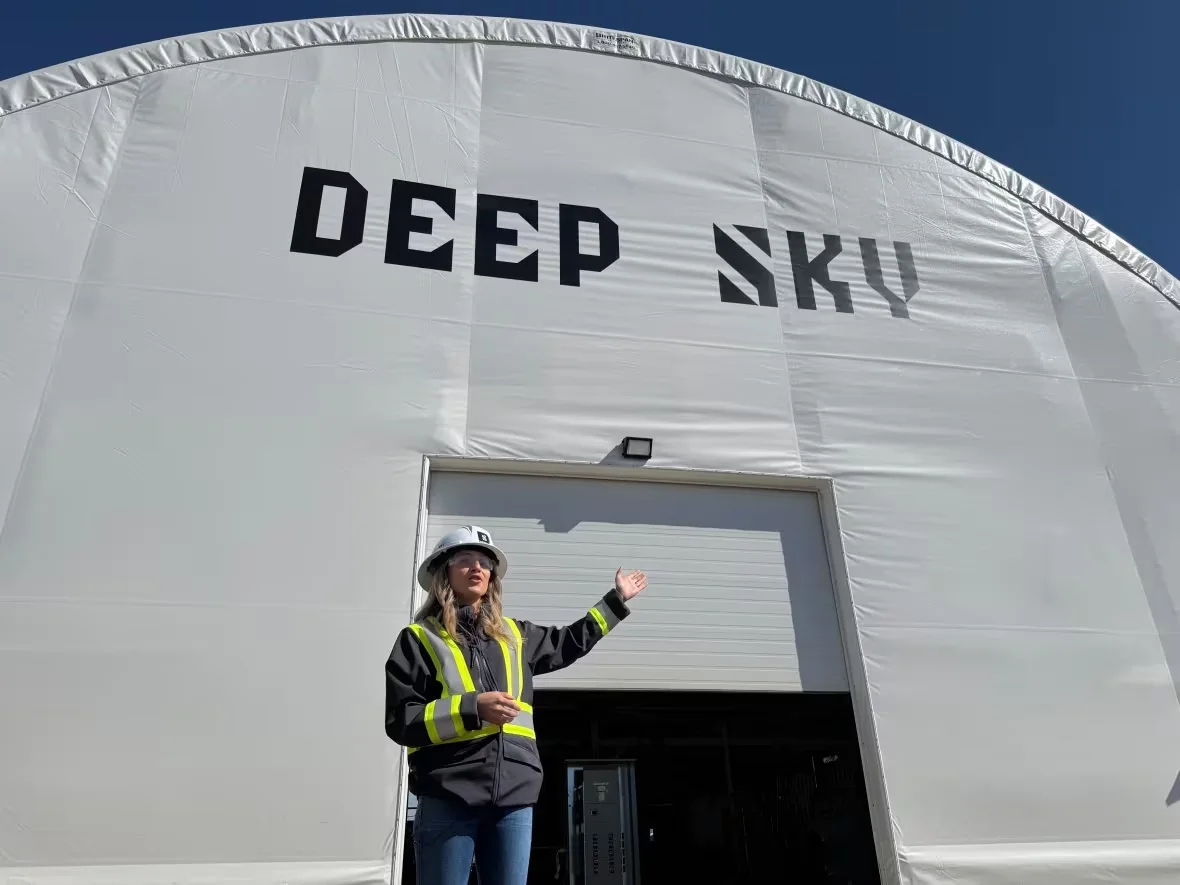
Alex Petre, CEO of Deep Sky, hosts a tour of the company's Innisfail facility. (Tiphanie Roquette/CBC)
The company is so confident this will be successful that it's already begun initial work on two commercial projects, one in Quebec and the other in Manitoba. That's despite not yet knowing how they will be fully financed or which technology will be put to use.
The finances, in particular, could be challenging given that removing carbon from the atmosphere is a pricey endeavour, in part because it's still new. But with global temperatures increasing each year, businesses like Deep Sky see a growing market for technologies that will not only reduce carbon emissions, but remove carbon dioxide from the air altogether.
This appetite may be changing as the Trump administration moves away from climate change initiatives more broadly and carbon removal specifically — though some say changing fortunes south of the border could also present an opportunity for Canada to pick up where the U.S. left off as a world leader in carbon removal.
"Had you talked to me a year ago, I would have told you that Canada was a distant second to the United States in terms of the carbon removal industry," said Damien Steel, Deep Sky's outgoing CEO and current advisor, who believes that carbon removal technology is essential to dealing with a warming climate.
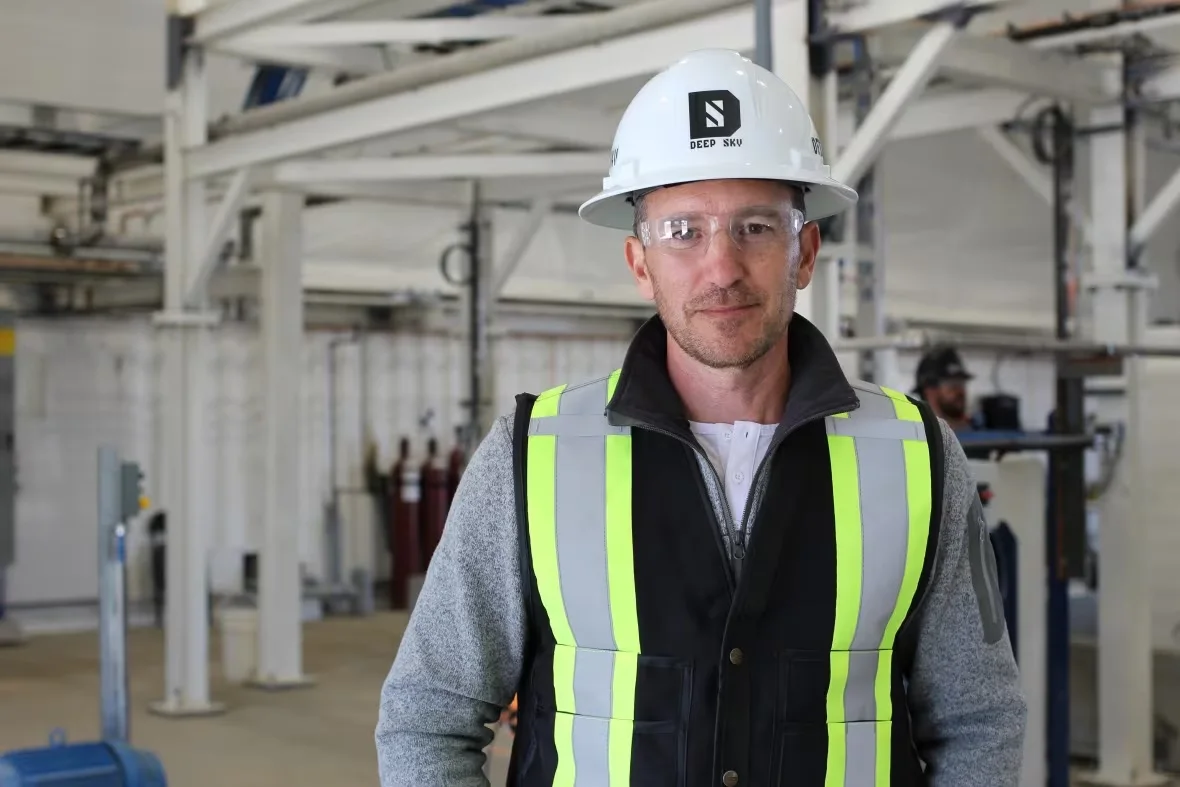
Damien Steel, outgoing CEO of Deep Sky, believes carbon removal is necessary to deal with a warming planet. (Paula Duhatschek/CBC)
"Today, I believe that there's an opportunity for Canada to take a global leadership position."
Can Canada be a leader?
Deep Sky is one of the country's more high-profile carbon removal startups — boosted by a major investment from Bill Gates' climate venture firm — but it isn't the only one.
Right next door in Squamish, B.C., for example, the company Carbon Engineering has been working for years on removing carbon from the atmosphere. It was purchased in 2023 by Occidental Petroleum, and is currently working on what's believed to be the world's largest direct air capture facility in western Texas.
Jeremy Barretto, a regulatory lawyer and partner with the Calgary-based law firm Cassels, said about a year ago his phone started "ringing off the hook" with companies interested in launching carbon removal projects in Alberta who were seeking his help in negotiating contracts.
"We're at the early stages, but I think we are off to a great start," he said.
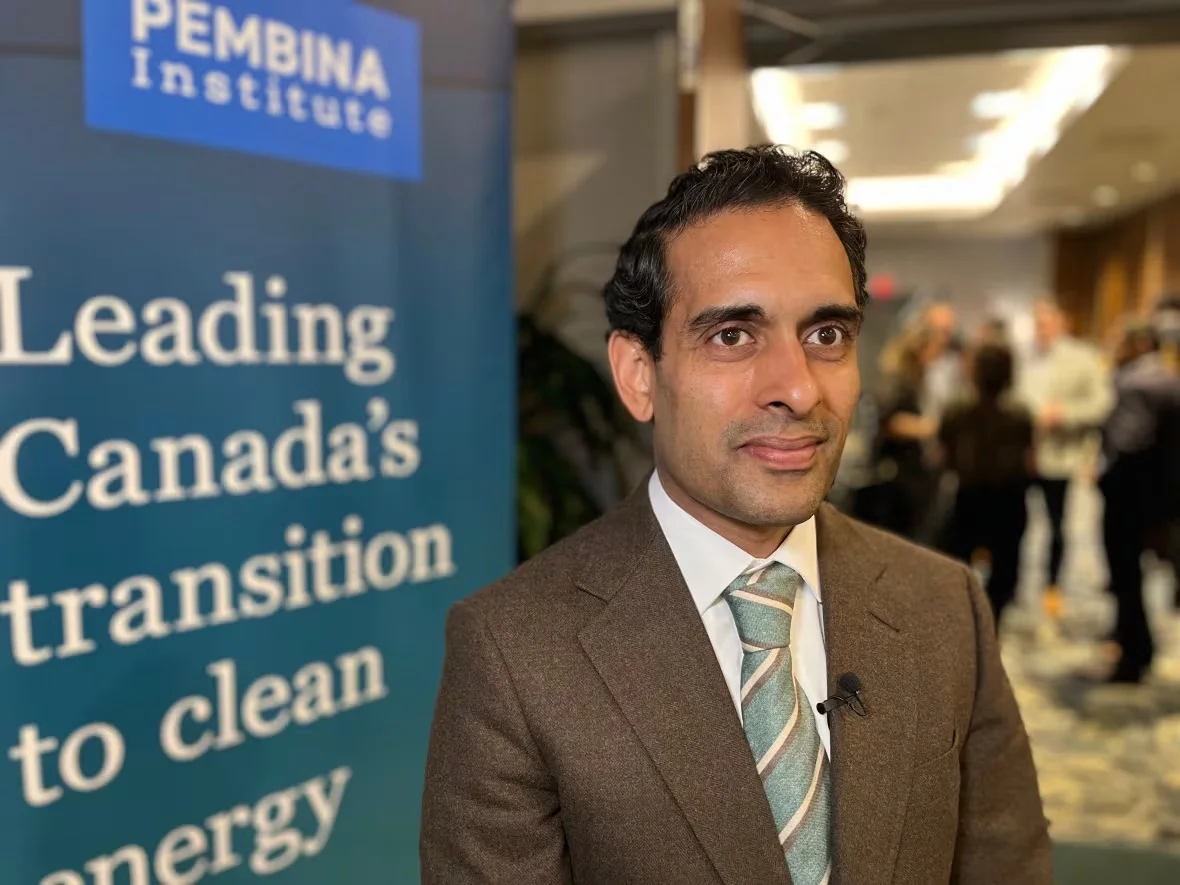
Jeremy Barretto, a regulatory lawyer and partner with the Calgary law firm Cassels, has been fielding calls from companies hoping to set up carbon removal projects in Alberta. (Paula Duhatschek/CBC)
At a national level, Prime Minister Mark Carney pledged in his campaign platform to make Canada a "world leader" in carbon removal and sequestration. And while the U.S. has previously been a world heavyweight in support for carbon removal, under the Trump administration, funding appears to be in limbo and several companies with operations south of the border are cutting staff.
Some believe that uncertainty south of the border opens a window of opportunity for Canada to become the new hotbed for carbon removal.
"We can see a pathway whereby [investment] capital that would otherwise be deployed in the U.S. actually comes north of the border here," said Ed Whittingham, an environmental policy consultant and former head of the Pembina Institute, a Calgary-based think-tank.
Economics a challenge
But as with any type of clean technology, an ongoing challenge lies in figuring out who will pay for it.
Deep Sky isn't selling the carbon removal facilities themselves. Instead, it removes carbon from the air itself and produces carbon credits, which companies can then purchase to hit certain environmental goals.
The company has sold its first credits to RBC and Microsoft through an agreement that will remove 10,000 tonnes of carbon dioxide from the atmosphere over a 10-year period.
Deep Sky wouldn't say exactly what these credits cost, but in a recent report, the investment bank Jefferies said one of the challenges facing the industry as a whole is that "carbon removal credits are exorbitantly expensive."
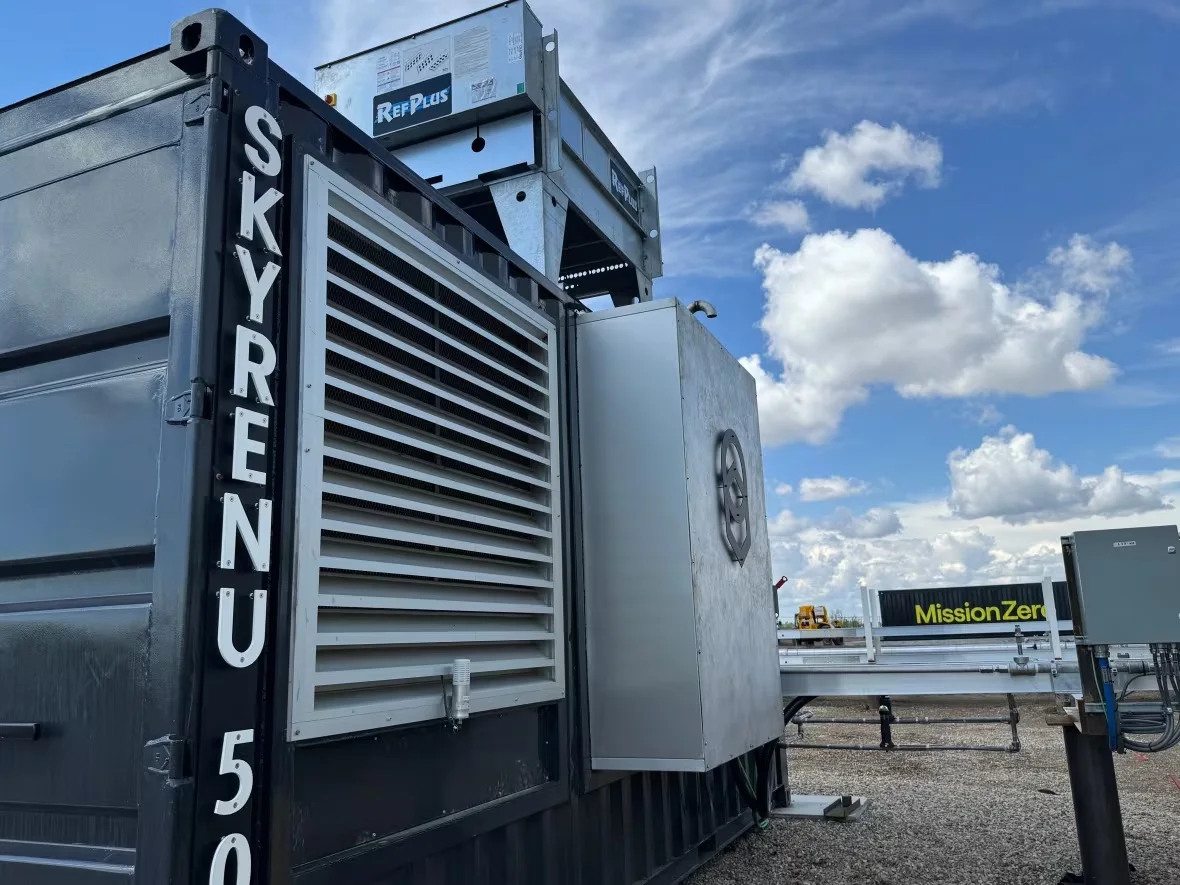
One of the testing units at the facility, which plans to begin removing carbon dioxide from the air and storing it underground later this summer. (Tiphanie Roquette/CBC)
Another risk, the Jefferies analysts noted, is concentration of demand. Microsoft, the company which was one of Deep Sky's initial purchasers, is responsible for much of the carbon removal credits that have been bought so far.
Tim Bushman, director of policy and research with the industry group Carbon Removal Canada, says in this country, just over a dozen companies have so far purchased credits from carbon removal projects.
"It's been a little slow," said Bushman, though he believes Canadian companies are more likely to support domestic projects, demand will pick up as more carbon removal projects are completed in this country.
There are efforts underway to shore up demand for these credits. Whittingham, the environmental policy consultant, is working on an "advanced market commitment" initiative — getting companies to band together and commit to buying carbon removal credits from projects that are still under development.
"That then allows carbon removal project developers to get their projects over the final investment decision hurdle," he said.
With an economy teetering on the verge of the recession, companies may be less likely to pay for carbon removal credits. Instead, they may be looking for cheaper ways of reducing their emissions — or they may let their environmental initiatives fall by the wayside altogether.

A worker walks past a tent at Deep Sky's Innisfail, Alta., testing site boasting the company's logo. Carbon dioxide that is scrubbed from the air by various technologies being tested at the site will be sent to a system within the tent that will compress it for underground storage. (Tiphanie Roquette/CBC)
"When the markets are bad, people are less likely to be voluntarily paying additional costs to signal good behaviour," said Warren Mabee, director of the Queen's University Institute for Energy and Environmental Policy.
'I have faith'
Steel, the Deep Sky CEO, believes there are solutions to all of those problems.
Carbon removal may be expensive now, he says, but as the technology develops those costs will go down. Deep Sky also benefits from a federal tax credit that will help get its first commercial projects built.
The Innisfail site, he said, will start capturing and sequestering carbon later this summer. And even once the winning technologies are chosen, the company plans to continue running the testing site for a total of 20 years.
While some companies have recently been publicly backing away from their climate commitments, Steel believes that behind the scenes, CEOs still realize that climate poses a long-term risk to their business and are willing to invest in solutions.
"I have faith that at the end of the day, human beings generally genuinely care about our future," said Steel.
WATCH: Wetlands could hold the key to carbon sequestration in our oceans
Thumbnail courtesy of Tiphanie Roquette/CBC.
The story was originally written by Paula Duhatschek and published for CBC News.
